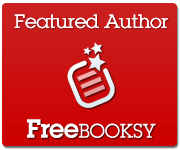

Mark Lee Taylor


FULL INTERVIEW
... as it appeared in Vonnie Winslow Crist's blog.
Thanks to new author, Mark Lee Taylor, for stopping by and answering a few questions.
VWC: When did you decide you wanted to be an author?
MLT: Although I come from a science background, I’ve always known there was a writer lurking inside me. I started writing what would one day become A Pebble Tossed purely for the fun of it, and I didn’t decide I wanted to publish until late in the process, when I knew for sure I was going to finish it, and realized that with a little work, it wouldn’t be half bad. At that point I began to wonder if others would enjoy reading it as much as I enjoyed writing it. But really, to me, deciding to become an author wasn’t like flipping a switch. It was a gradual thing, like watching the sun rise.
VWC: What are some of the things you did to reach that goal?
MLT: First of all, and this was something I did even before I knew I had a goal, I read like crazy. In this way I learned the kinds of things that worked for me in other people’s writing, and the things that didn’t. Later, after I’d written the first draft of my novel, I passed it around to some people whose opinions I valued, and who wouldn’t hesitate to toast me over a slow fire if they ran across something they didn’t like. I took all the ensuing criticism to heart and I worked hard to improve the story and wipe out the bad habits in my writing (of which there were plenty). I also read many books about the craft of writing, which I feel is something every aspiring writer simply must do. There are too many things you have to know that are not all that intuitive, unless you’re more gifted than I.
VWC: Did you try to find a traditional or Indie publisher for A Pebble Tossed before self-publishing?
MLT: I did, but I have to admit that I probably didn’t give it the all-out effort that I should have. After the first few rejections, I started to read horror stories about how impossible it is to get a publishing deal, or even an agent, these days, and I lost patience. I reasoned that, at the age of 55, I might not live long enough to see traditional publishing, and having always been something of a DIY person anyway, self-publishing appealed to me, so I just went for it.
VWC: What is the most challenging thing about self-publishing your book?
MLT: Marketing. When you self-publish, you don’t have anyone in your corner. It’s just you and the rest of the world, and the rest of the world has never heard of you and doesn’t care if they never do. You have to make them care, all by yourself. I’m not your classic Type A personality, so I find that phase of the process daunting.
VWC: A Pebble Tossed is a suspense novel. Is that the sort of book you read?
MLT: Not exclusively. When I was younger I read a lot of SF and fantasy, but as I aged I gravitated toward horror, mysteries, and thrillers. I read more suspense novels now that I’ve written one myself, and that’s not only because I enjoy them, but also because I continue to learn from the writing of other folks.
VWC: The father character, Tim Raither, in A Pebble Tossed does an annual treasure hunt for his daughters. Did you do this for your children? Do you like to design and/or participate in treasure hunts?
MLT: Funny you should ask! It was a treasure hunt, ten years ago, that provoked my novel, one I’d created for my two daughters. At one point I was hiding a clue in the woods, alone, and I caught myself running flat out in my excitement. I reined myself in, figuring that if I tripped and broke a leg or something of the sort, no one would ever find me and I might die there. Then I realized that my daughters would find me in due time, as soon as they solved the earlier clues, and that became the germ of my story. The mirror-image puzzle in A Pebble Tossed is actually lifted in whole cloth from that treasure hunt. You can see it on my website. I think I had as much fun as my girls did that summer, but sadly no Second Annual Treasure Hunt ever occurred.
VWC: You have a day job working for the State of Maryland and a family, so do you have any time-management secrets for writers?
MLT: Hah! I wish. My writing time is limited, for the most part, to the hours between six and ten PM. (I used to be able to stay up later, but it seems like those days are behind me.) Unfortunately, there are a lot of other things going on in those hours as well, and I’m lucky if I can squeeze in an hour of writing on a typical weeknight. My only secret is this: when I find that I’m home alone for some reason, if it’s for an entire Saturday or just a random hour, I don’t waste it. I head straight for my cave and start writing.
VWC: What projects are you working on now?
MLT: I’m currently almost finished with the first draft of my second novel. If all goes well, it should see print before the end of the year. But then, how often does all go well?
VWC: Do you work on more than one book at a time?
MLT: Depends on how you look at it. When I finish the first draft I’m working on, I plan to set it aside and let it percolate for a few months before I go back to it. During that time, I aim to start working on something else, then go back and write the second draft while the third project waits. So I’m not really writing on two projects at the same time, I’m alternating, but they’re both works in progress, so if you really stretch it … I suppose the short answer is, yes.
VWC: What advice do you have for writers trying to get a book published?
MLT: Commit yourself to improving as a writer. Becoming an author is just like becoming a nurse or an electrician or an accountant: it’s not something you just jump into without an education. Accept that no matter how good you think you are when you first start writing, in reality you stink; but fear not, this can be overcome. Be prepared to write and rewrite and rewrite some more. Join a writer’s group and share, and be open to criticism and willing to learn. (It helps to have a thick skin.) Read a lot, in as many styles as you can, and make sure you find time for non-fiction books on the craft of writing and publishing.
VWC: Who was your favorite author as a child?
MLT: The earliest I can remember saying I had a favorite author was in ninth grade, and it was J.R.R. Tolkien. But Isaac Asimov and Roger Zelazny were also up there.
VWC: Who is your favorite author now?
MLT: Can’t go wrong with Mark Twain, but since I’ve read all his works and no more are forthcoming, I turn to Stephen King.
VWC: When is your favorite time of day to write?
MLT: I write whenever I can fit it in, but if I had my druthers, I’d stick to mornings.
VWC: What was the most valuable piece of writing advice given to you?
MLT: “Show, don’t tell!” It may be cliché, but to me, it’s the single most important thing to understand when writing fiction. I remember the first time I heard it, and the distinct “Aha!” moment I had once I got it. It’s an easy concept, but it’s not easily mastered, and when I write I still have to be vigilant for that lazy, sneaky drift into telling.
VWC: And now, the final and most important question – What’s your favorite kind of cookie?
MLT: That’s an easy one: oatmeal raisin, especially if it’s still warm and soft.